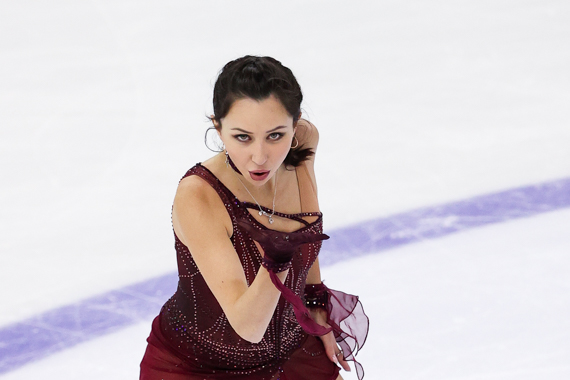
The world and European champion in 2015, the silver medalist of the 2021 World Championship Elizaveta Tuktamysheva spoke about the final stage of the Grand Prix in Sochi, the importance of qualifying for the final of the series, the content of her programs and what programs, in her opinion, can be called Olympic.
- Lisa, can you analyze your performance at the Grand Prix in Sochi?
- I'm happy with how it went. After the end of the competition, the emotions were positive, and this is the most important thing, because I knew that it would not be easy. I didn't have much time to recover from the illness, and I prepared myself for that. But it turned out even better than I expected.
In principle, I am satisfied with the rental of the short program, and on the free
skate... Already in the evening I realized that my legs did not really want to ride today. I knew it was going to be tough. And I think it was visible, noticeable, although I tried to show the image. But it wasn't a performance like I can skate. So I'll work on that. I hope that the form will quickly return at the Grand Prix final (at the time of the interview it was not yet known that the final of the series was postponed – approx.),and at the Russian Championship I will show a different skating, not the same as here - the best, better quality.-- That is, the physical condition affected?
- Yes, it's a trivial physical condition. Legs are the most important thing we have, and if they are in good shape, "working", if you yourself are in good shape, naturally, and you ride more confidently. It's not just a triple Riethberger, a double axel, which can be done in any state. There are more serious jumps, difficult elements.
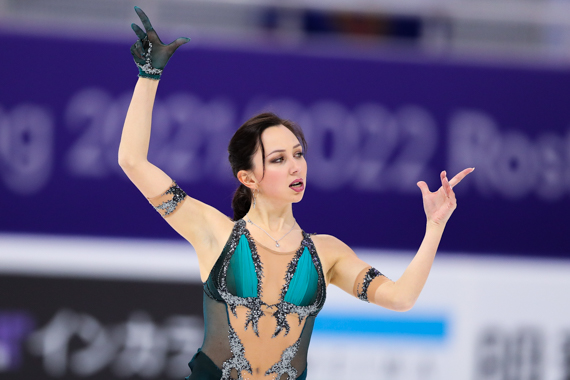
- Do you think this start will add confidence to you, because you coped even in such a situation?
- I don't know what should happen to me, so that I can be sure after what start I can say: that's all, after this I will be able to skate in any state. I thought I could say that after last year's World Cup because I was so nervous. Or after the Canadian Grand Prix, because it was cold and I really wanted to sleep. Or now, after Sochi, where I was again not in the best shape. And after all this, you think: well, that's it, you have already overcome so much of everything - come out calmly, ride! But no: you still worry every time, you find something else...
I want to feel at least one start, so that I confidently just go out and skate on the drive. But since this season is responsible, you still approach the competition without such ease as you can do.
- How important was it for you this season to qualify for the Grand Prix final?
- It was important for me, because the Grand Prix Final is a prestigious start, in which some of the best skaters participate. And in the Olympic season, qualifying for the final is a good bid to compete for a place in the Olympic team. To go to the final is like a step forward.
- During the performances you had memorable interesting programs, but this season you and the coaches and directors, you can say, got to the point. Could you call these programs Olympic, the best of Lisa Tuktamysheva?
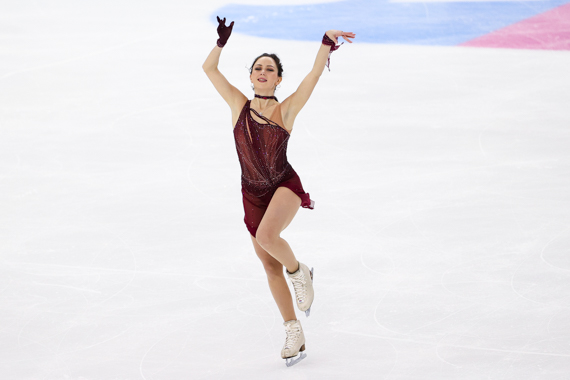
- I took these musical compositions with this calculation, which I feel very well, and where there are completely different images. In the Olympic season, in my programs, I wanted to be absolutely myself. To be honest, I don't know what the "Olympic program" is. For some athletes at the beginning of the season, some programs are not liked by the public at all. But when athletes become champions, their programs are immediately called Olympic.
It seems to me that when you go out on the Olympic ice and skate cleanly, on the rupture of the aorta, then this courage can be transmitted to the audience, and the program sounds stronger, becomes a strong program. It seems to me that it is not even about the music, but about the athlete, so that he presents his program as an Olympic one. I'm saying this, I can imagine, and I even got goosebumps...
- You said that you chose the music for this season's programs.
- Nope. I don't have a character that I clearly understand what kind of music is needed. I have an idea, and I need to be offered options and then I will know what to choose. With Ilya Averbukh (short program - Oblivion (J'oublie) by Astor Piazzolla, performed by Misia – approx.) everything was simple. I said I wanted to, and he sent three musical versions, we settled on one of them. Alexei Nikolaevich (Mishin – approx.) immediately agreed, because it was MINE. And when they started scaling, I felt the music even more, because on the ice, with movements, it is perceived more and more deeply.
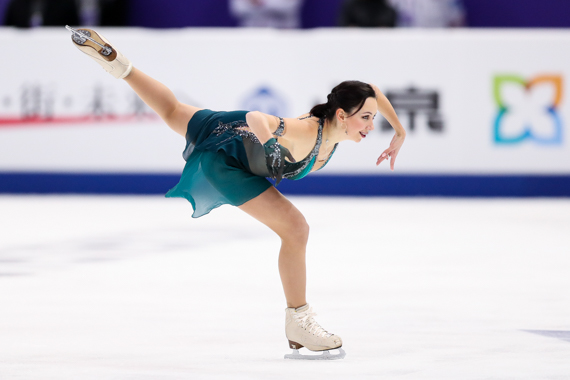
And in the free (Arabia by Hanine El Alam, My Love... Music by Artem Uzunov) I am also Nikita (Mikhailov – approx.) explained what I needed. But when he sent a lot of options for consideration, I had a little mess in my head, where, what, how. But when he put everything together, I listened and thought – just fire! What I wanted, it turned out. It's been almost six months since I've been skating this program, and I don't get bored with what I'm doing.
- And how did you formulate your ideas to the directors so that they could pick up the music?
- I said to Ilya: I want a feminine deep image, and if the vocals are in French, it's generally wonderful. I had an idea in my head that it should be such serious mature female music, and I saw it in French. And when Ilya sent me what he found, I replied: this is exactly what I want.
And Nikita just outlined: an oriental theme, I want to get high and dance, so find tempo cool music. Nikita is already quite experienced and knows what the audience will like, what the athletes will like. The main thing is that there is a slow part in the middle in this program so that I can take a little break. That's important to me. And I said, "Nikita, the slow part in the middle because I just can't stand skating like I did last year."
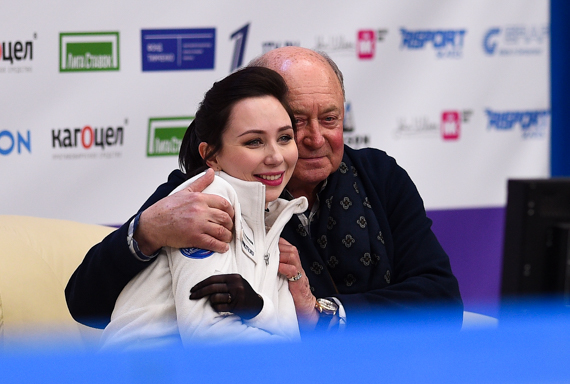
- You yourself clearly understood what programs you wanted, and the directors helped you to implement it. Faithfully?
- Yes, it was the first year when I basically knew what I wanted in the Olympic season, what kind of programs. Before that, I also roughly understood, and there were many different options. But this time there was no doubt, so it was even simpler with the choice.
When the choice is "simple", the most obvious programs are obtained. When some things add up and come easily, then everything is right.
- At the press conference, you were asked a question about quadruple jumps. At the Russian Championships in Krasnoyarsk, you tried to perform a quadruple in the free program.
- Yes, I didn't do it then - I fell. But the fact remains that I trained, tried quadruple. Then there was a different situation, then you could take risks. It's the Olympic season and it's different.
- At the stage in Sochi, you slightly complicated the free program. Wait for some more changes?
- It is unlikely that anything will change dramatically, because now I have programs with the content that I most often skate. And it is not very good to get out of the "rolled state" that is there during this period of time. Perhaps, if there are changes, it will be small.
- In other words, everything needs to be stabilized and brought to a shine.
- Yes, I want everything to go through in one breath.
- Thanks, Lisa, good luck.
Olga ERMOLINA, Tatyana FLADE
Photo by Julia KOMAROVA and Maria EVTEEVA

No comments:
Post a Comment